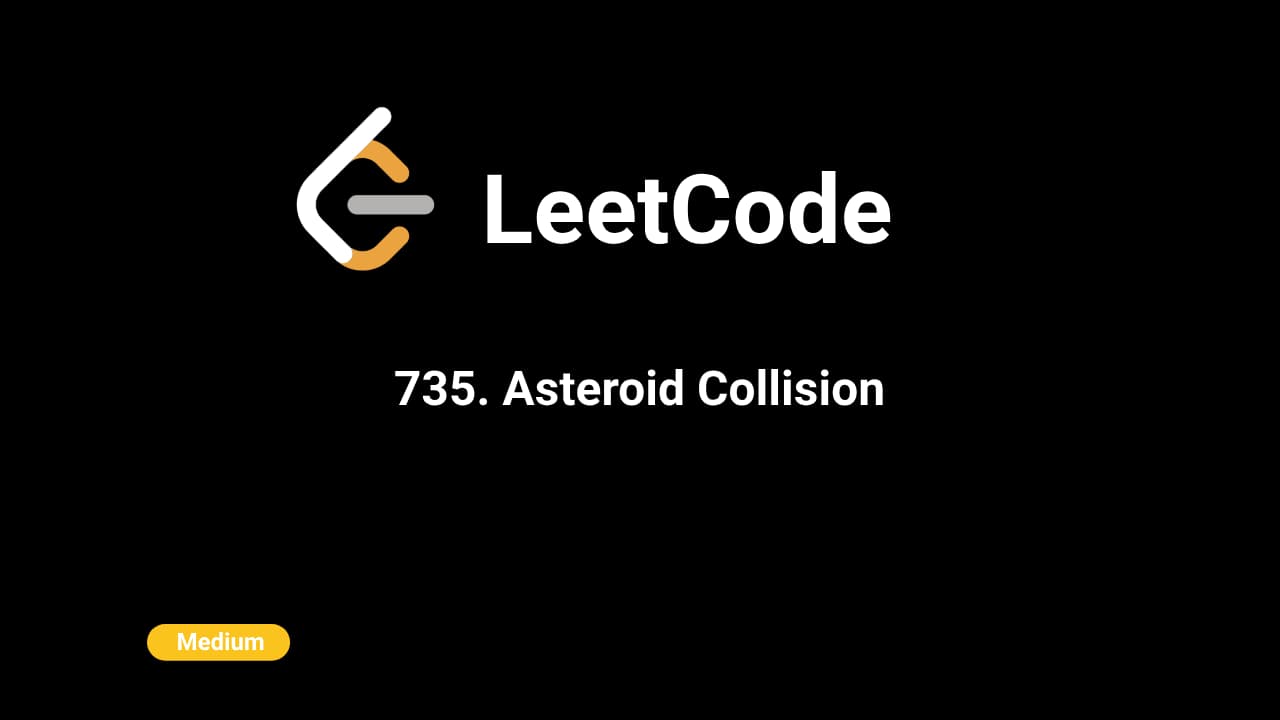Dare2Solve


The problem involves a series of asteroids represented by an array. Each asteroid is moving either to the left (negative value) or to the right (positive value). When two asteroids collide, the one with a larger absolute value destroys the other. If they are equal in size, both asteroids are destroyed. The task is to simulate all the collisions and return the state of the asteroids after all collisions.
The key insight is that collisions only happen between a right-moving asteroid and a left-moving asteroid. By maintaining a stack, we can effectively simulate the process of resolving collisions as we iterate through the asteroid list. Each time we encounter a collision, we resolve it by comparing the absolute sizes of the asteroids involved.
asteroids array:
O(n), where n is the number of asteroids. Each asteroid is pushed and popped from the stack at most once.
O(n) in the worst case, if all asteroids are stored in the stack.
class Solution {
public:
std::vector<int> asteroidCollision(std::vector<int>& asteroids) {
std::vector<int> res;
for (int i = 0; i < asteroids.size(); ++i) {
int cur = asteroids[i];
while (!res.empty() && res.back() > 0 && cur < 0) {
if (res.back() < -cur) {
res.pop_back();
continue;
} else if (res.back() == -cur) {
res.pop_back();
}
cur = 0;
}
if (cur != 0) {
res.push_back(cur);
}
}
return res;
}
};
class Solution:
def asteroidCollision(self, asteroids):
res = []
for cur in asteroids:
while res and res[-1] > 0 and cur < 0:
if res[-1] < -cur:
res.pop()
continue
elif res[-1] == -cur:
res.pop()
break
else:
res.append(cur)
return res
class Solution {
public int[] asteroidCollision(int[] asteroids) {
Stack<Integer> stack = new Stack<>();
for (int cur : asteroids) {
boolean isDestroyed = false;
while (!stack.isEmpty() && stack.peek() > 0 && cur < 0) {
if (stack.peek() < -cur) {
stack.pop();
continue;
} else if (stack.peek() == -cur) {
stack.pop();
}
isDestroyed = true;
break;
}
if (!isDestroyed) {
stack.push(cur);
}
}
return stack.stream().mapToInt(i -> i).toArray();
}
}
var asteroidCollision = function (asteroids) {
const res = []
for (let i = 0; i < asteroids.length; i++) {
const last = res[res.length - 1]
const cur = asteroids[i]
if (!res.length || last < 0 || cur > 0) {
res.push(cur)
} else if (-cur == last) {
res.pop()
} else if (-cur > last) {
res.pop()
i--
}
}
return res
};